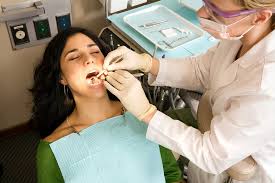
The healthcare industry is one of the fastest-growing sectors in the world, and the need for skilled professionals is at an all-time high. Among these roles, medical secretaries play a vital part in ensuring the smooth functioning of healthcare facilities. Yet, excelling in this role requires more than basic administrative tasks; it demands a deep understanding of real-world office skills and the ability to handle the unique challenges of Medical secretary (arztsekretärin) environments.
Medical secretary courses that focus on real-world office skills aim to bridge the gap between academic learning and practical experience. These programs are specifically designed to prepare individuals for the dynamic environment of healthcare offices, equipping them with the tools needed to excel in their roles. Here’s why enrolling in a medical secretary course with a real-world focus is a game-changer for career success.
Building the Foundation for Practical Expertise
Medical secretary courses emphasizing real-world office skills are tailored to provide hands-on training that goes beyond theory. Students are taught to handle everyday tasks encountered in medical offices with confidence and professionalism. This includes managing patient schedules, processing medical records, and dealing with regulatory documentation.
Instead of merely learning the definitions of terms or concepts, students are guided through real-life scenarios where they apply their know-how. This practical application ensures they are fully prepared to step into the workforce and hit the ground running.
Developing Mastery of Healthcare Software
A significant component of these courses includes training in the use of essential healthcare software applications. Medical offices rely heavily on electronic health records (EHR) systems, medical billing software, and appointment scheduling tools to operate efficiently.
Through guided instruction and practice, students gain familiarity with these platforms, enabling them to perform administrative tasks with speed and accuracy. By the time they complete their training, they’re already proficient in using technology that is critical to day-to-day operations in medical facilities.
Enhancing Communication and Organizational Skills
Communication is at the heart of a medical secretary’s role. Whether interacting with patients, coordinating with healthcare providers, or liaising with insurance companies, strong verbal and written communication skills are essential. Medical secretary courses provide training in these areas, teaching students how to communicate effectively with diverse audiences in a healthcare setting.
Alongside communication, effective organizational skills are emphasized. Maintaining schedules, managing patient files, and ensuring compliance with healthcare regulations require meticulous attention to detail. A well-structured course equips students with the tools and strategies they need to stay organized in a fast-paced environment.
Understanding the Ethics and Privacy Regulations
The healthcare industry is governed by stringent privacy and ethical regulations, such as the Health Insurance Portability and Accountability Act (HIPAA). A good medical secretary course ensures students have a thorough understanding of these laws.
Participants are guided through scenarios that simulate privacy challenges they may encounter in real work environments. This emphasis on ethics ensures that students are not only skilled professionals but also trustworthy custodians of sensitive patient information.
Fast-Tracking Career Growth
Medical secretary courses focusing on real-world office skills also significantly enhance job prospects and career growth. Employers value candidates who come prepared with practical knowledge, as they require less on-the-job training and can adapt quickly to their new roles.







